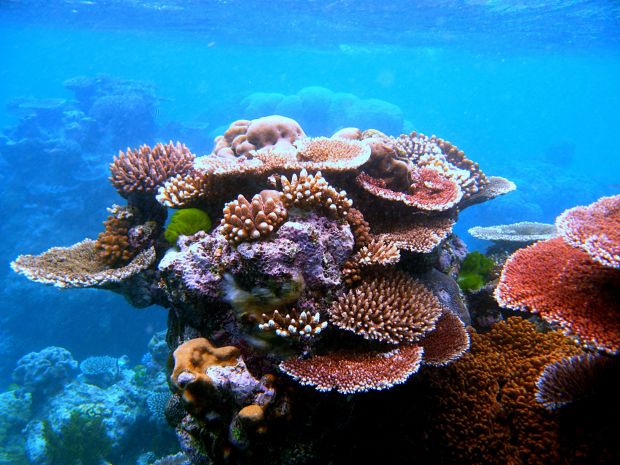The Latest United Nations climate report is deeply disturbing because coral reefs may not be here tomorrow. Let me tell you why they are so vital. Coral reefs brim with biodiversity, which is, in fact, their ultimate strength. All of the biodiversity along coral reefs is interdependent, enabling the existence of a vibrant life-sustaining energy force.
Although coral reefs occupy less than 0.1 percent of ocean area globally, they are home to at least one quarter, and perhaps as much as one third, of everything that lives in the ocean (or between 56,500 and 75,333 known forms of life) including the great whales.
Coral reefs support more species per square mile than any other marine environment, providing habitat, food and spawning grounds. At least 500 million humans depend on coral reefs for daily food, coastal protection and ecotourism, a net economic value of at least $30 billion per annum.
Irrefutable warming the oceans and rising acidity is killing coral reefs, faster today than in the previous 300 million years. In fact, as much as 80 percent of Caribbean coral reefs are dead. And, in Australia, almost three quarters of the largest reef on the globe, the Great Barrier Reef, has died.
This is an epic disaster because coral reefs provide us with the strongest cancer, pain and AIDS medicines that scientists have ever discovered. Coral is the most effective treatment in regrowing human bones, with patients requiring no immunosuppressing drugs. Incidentally, ocean-derived pharmaceuticals are so important that Merck, Lilly, Pfizer, Hoffmann-La Roche and Bristol-Myers Squibb have all established marine biology divisions. The ecosystem services that healthy, vibrant coral reefs provide us has been estimated at $1-trillion annually. Coral reefs are our children’s legacy.
Clearly, it’s time we took the latest UN Climate warning seriously. Coral reefs are the most valuable marine ecosystems on Earth and climate disruption is killing them, quickly.
It is up to each of us to make a difference by reducing our dependence upon carbon-based fuels, i.e. coal, oil, gas and plastics. Many of the necessary changes are simply altering habits like walking or riding a bicycle more and driving less.
Please calculate your carbon footprint and challenge yourself and your family to reduce it.
Change is opportunity in disguise!
Consider supporting Sea Shepherd Global because, as Captain Paul Watson aptly warns us, “To save the whales is to save the seas, and to save the seas is to save humanity.”

